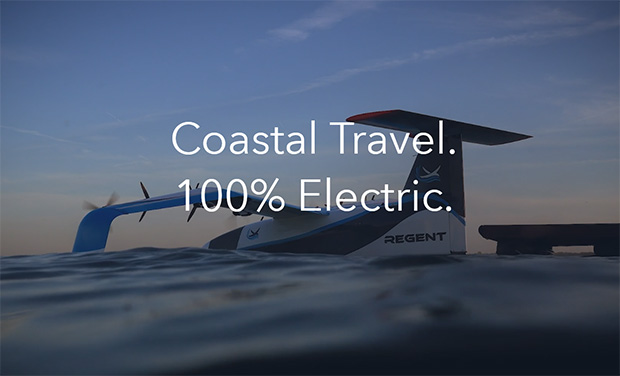
The Vision Behind Electric Seagliders
The world of electric aviation has faced challenges due to the limited range of batteries and the lengthy certification process. Billy Thalheimer, the Co-Founder and CEO of Regent, believes the solution lies in electric seagliders. These vehicles combine the principles of hydro-foiling watercraft and electric aviation, operating like boats in docks and harbors but taking off like aircrafts over open waters.
A New Class of Vehicle: Wing-in-Ground Effect
Electric seagliders fall under a unique category known as wing-in-ground effect vehicles (WIG). These vehicles are governed by maritime jurisdiction both internationally and domestically. The certification process, though lengthy, doesn’t compromise on safety. Instead, it offers a more direct regulatory route. Seagliders always operate within one wingspan of the water’s surface, leveraging the ground effect for aerodynamic efficiency and improved range.
Performance and Potential
Regent’s seagliders are designed to reach cruise speeds of up to 180 mph and can travel up to 180 miles on a single charge. With advancements in technology, Thalheimer envisions battery ranges extending from 350 to 500 miles by the end of the decade.
Funding and Future Plans
Regent has successfully secured $60 million in a Series A funding round, with contributions from 8090 Industries, Founders Fund, and other notable investors. The funds are earmarked for building a proof-of-concept prototype and expanding the team. Regent has two products in the pipeline: Viceroy, a 12-passenger vehicle, and Monarch, a 100-passenger seaglider. Trials are set to commence next summer, with the first human flight anticipated by the end of 2024.
Expanding Horizons: International Collaborations
Regent has entered into a memorandum of understanding with Japan Airlines, aiming to establish seaglider operations in Japan. However, the vision doesn’t stop there. Potential markets include Miami, the Bahamas, the Pacific Northwest, Hawaii, the Mediterranean Sea, the English Channel, and the North Sea.
In conclusion, electric seagliders represent a promising avenue in the realm of sustainable transportation. With the backing of significant investments and a clear roadmap, the future looks bright for Regent and its innovative approach to travel.
Please email us your feedback and news tips at hello(at)techcompanynews.com

